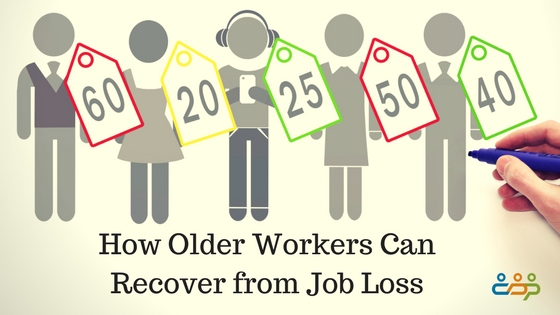I recently read an article about the employment prospects for those of us over 50, it gave some startling statistics that we all intuitively know as true.
Once an older worker loses a job, it takes them longer than younger job seekers to find a new one. On average, 25- to 44-year-olds land a new job in just over five months, but it takes two to five months longer for older workers, depending on their age, reports the Bureau of Labor Statistics.
Ageism is a reality for older job seekers. Try to work around the stereotypes of older workers, no one cares that you’re 60. It’s not the age. It’s what it represents. Employers often assume older workers have low energy and are inflexible, uncomfortable with technology and just biding their time until retirement.
To overcome these views, show that you are still learning and on the cutting edge of your field by attending conferences, serving on panels at seminars or writing articles. Post a full and robust profile on LinkedIn. If you don’t have a LinkedIn profile, employers may assume you lack the technology skills to keep up.
So how do you overcome the ageism?
You probably already know your next boss or at least someone you know knows your next boss. Reconnect with old connections from college, past employer, school activities, church. Everyone you have ever known is a potential job lead.
Be flexible on salary and title. If you are applying to a position that requires 10 years of experience, your 30 years of experience doesn’t make you 3 times more qualified. It means you probably have 20 years of outdated, obsolete experience. Do your research and understand what the market rate is for the job you are applying for and adjust your expectations accordingly.
For additional advice on how to conduct an effective Job Search After 60 see my recent blog post.
According to a recent report by Bain & Co. there is good news on the horizon. As more of the baby boomers retire and fewer millennials enter the labor-force the labor-force growth is expected to slow to 0.4% a year in the 2020’s. “Baby boomers will remain an important pool of talent through 2030, when the youngest cohort of that generation will only be 66,” the report said.
“The war for talent” means companies will be innovating like crazy to make compelling offers to workers.” There will also be more demand for flexible work arrangements from employees and job applicants, and more need for a flexible workforce in general.
I would be interested in hearing your experiences with ageism in the workplace.

Rick Christensen: Director, Career Transition Practice Rick has been a career consultant for over 25 years, serving a very broad-based and diverse clientele. His specialties include effective group facilitation, one-on-one coaching and consultation at all levels including senior executives.
Rick’s passion is coaching individuals through career transitions, developing career management strategies and in identifying and sharpening competencies to open doors to new opportunities. His efforts have assisted thousands of individuals achieve their full potential.




